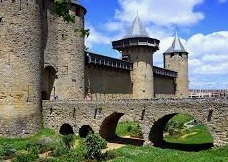The first step we are going to take in order to know the meaning of the medieval term is to discover its etymological origin. In this case, we have to emphasize that it derives from Latin, exactly the result of the sum of three lexical components of said language:
-The word “medius”, which means “middle”.
-The noun “aevum”, which can be translated as “was”.
-The suffix “-al”, which is used to indicate “relative to”.
The notion of medieval refers to that linked to the Middle Ages , also called medieval and medievo . This is the historical period that began in the 5th century and lasted until the end of the 15th century .
 The beginning of the medieval period is usually established in 476 , when the Western Roman Empire fell. The end of this historical age, meanwhile, is placed in 1492 (the arrival of Europeans to the American continent) or 1453 (the decline of the Byzantine Empire and the invention of the printing press ).
The beginning of the medieval period is usually established in 476 , when the Western Roman Empire fell. The end of this historical age, meanwhile, is placed in 1492 (the arrival of Europeans to the American continent) or 1453 (the decline of the Byzantine Empire and the invention of the printing press ).
Interest in medieval issues is called medievalism . The medieval setting and style of the time generate fascination in many people, from scientists who rigorously study those years to artists who use their imagination to recreate, with greater or lesser attachment to the real past, different ancient facets.
The literary production that developed in the Middle Ages is known as medieval literature . Most of the texts have religious themes, although secular content can also be found. Many works are anonymous since their authors are unknown.
The Song of Mio Cid is among the best-known medieval works . It is a song of deed inspired by the life of Rodrigo Díaz de Vivar el Campeador , a Castilian knight. The epic poems Beowulf and the Song of Roland are also very famous: in all three cases, these samples of medieval literature are anonymous.
However, we cannot ignore other works that are also considered very significant in medieval literature. We are referring to the following:
-“The Count Lucanor” (1335) by Don Juan Manuel.
-The poetic work “Miracles of Our Lady” (1252), which is the most important work of those carried out by the clergyman Gonzalo de Berceo.
-“The Book of Good Love” (1330) by Juan Ruiz, known as the Archpriest of Hita.
-“The Divine Comedy” (1321) by Dante Alighieri. It is considered a classic of literature of all time and also the book that marked at that time the transition from medieval thought to so-called anthropocentric thought.
-“The Canterbury Tales” (1400) by Geoffrey Chaucer. It is a collection of 24 stories, 22 of which are written in verse and only 2 in prose.
-“La Celestina” (1500) by Fernando de Rojas. This work is also known as “Tragicomedy of Calixto and Melibea” and is a masterpiece of Spanish literature of all time.
As for medieval music , it was performed mainly with string instruments such as the lute , the harp and the viola ; and with wind instruments such as organs and flutes .
